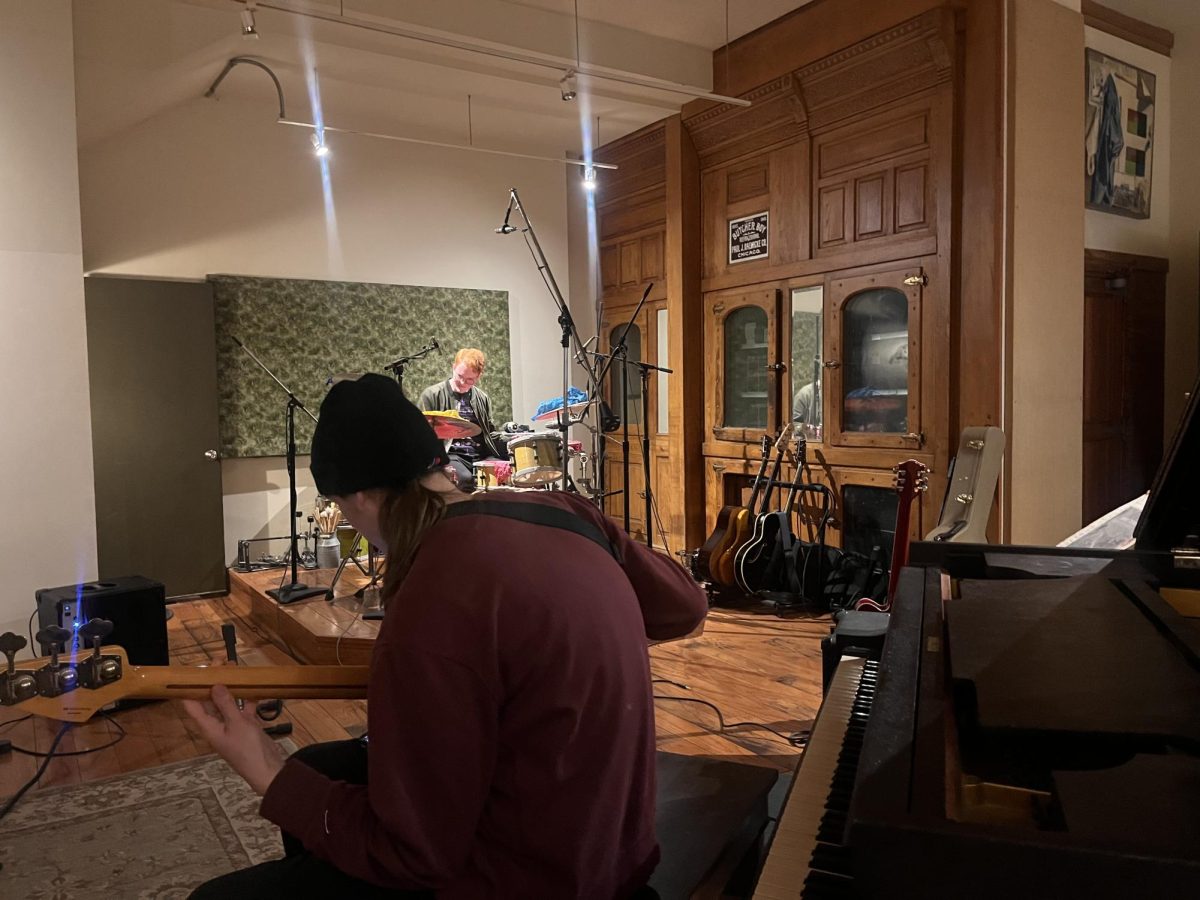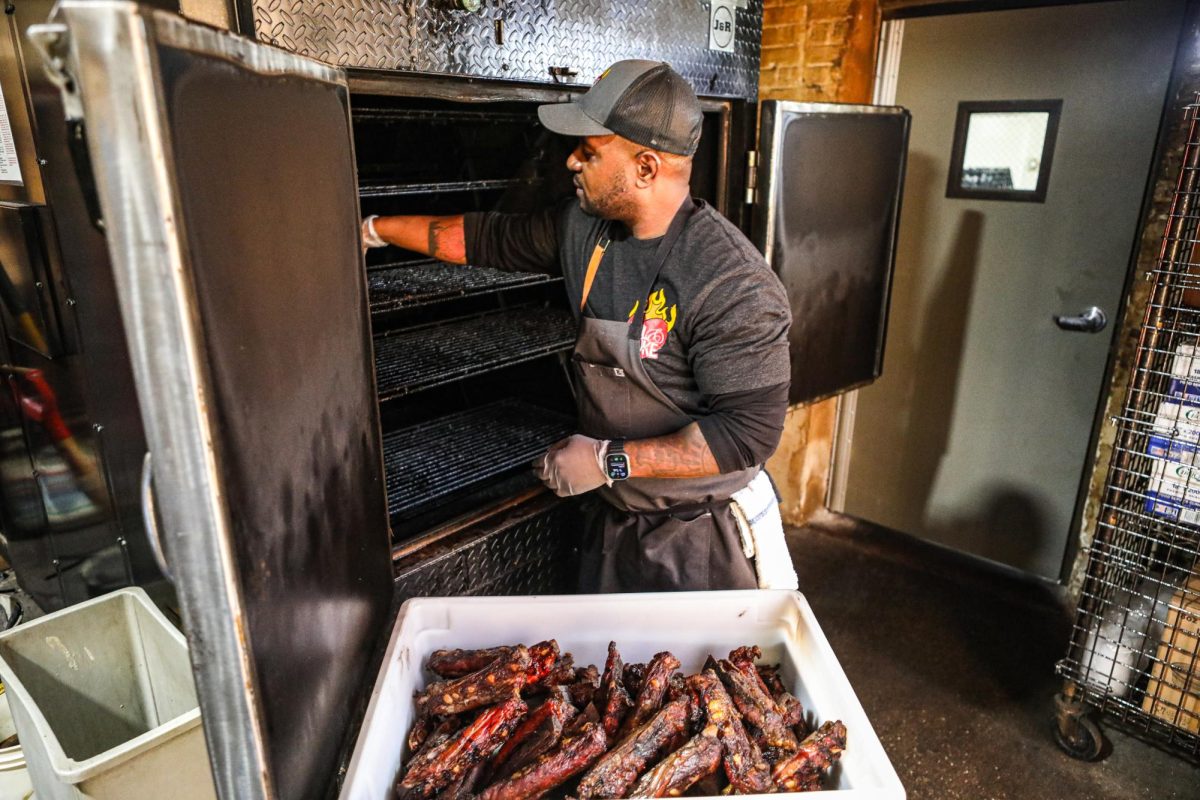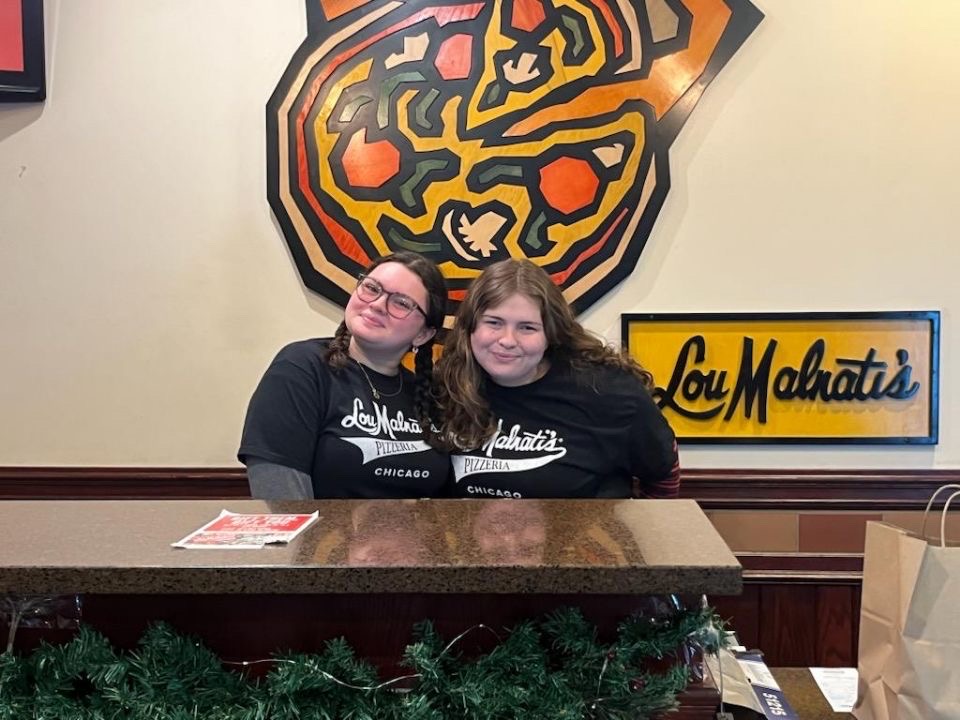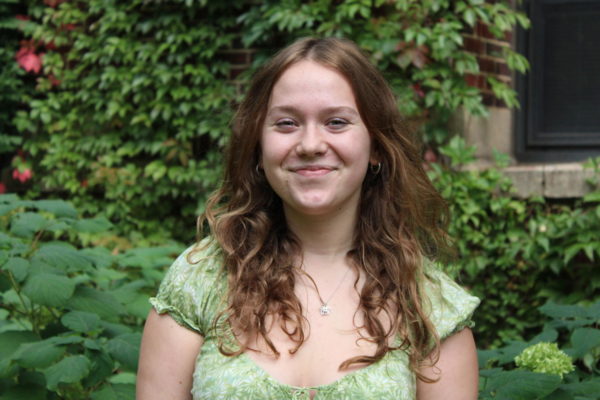Every Tuesday night from 5 to 7 p.m., a dozen or so musicians in the Evanston community travel to 1224 Washington Street to play at a jam session. Housed at Butcher Boy, they have access to a full drum set, multiple guitars and basses, professional microphones and mixing systems, and even a harp. Throughout the night, they play music from personal requests to on-the-spot creations. Coming and going whenever free, each person recognizes the opportunity to make connections with other musicians and have fun together in a supportive, collaborative space.
Production Assistant Soren Dorr started hosting the sessions earlier this spring. Besides wanting a place to play music after high school, his reasons for starting the jams included a desire for the studio to reach more people, too.
“Most of the time, we’re working one-on-one. I thought it would be fun to get people together [to] make music,” said Dorr.
Two-time Grammy Awards winning Executive Director Jim Tullio opened Butcher Boy to serve as a private recording studio for local artists. But he hasn’t only produced music here: Tullio has worked with artists such as Mavis Staples, Dave Mason and Mary Lane. And while his production journey started 54 years ago, Tullio has been involved with music for his whole life.
His father, a professional jazz drummer, got Tullio and his brother to learn to play piano. They started a band when Tullio learned to play the guitar and his brother, the drums.
“When The Beatles came out, [being in a band] was the coolest thing in the world,” Tullio said. “Everybody wanted to learn chords or songs from us.”
Coincidentally, it was The Beatles’ 1966 Revolver album that hooked him on the idea of producing.
“There were certain tracks on that record that the world had never heard anything like,” Tullio said. “I wanted to know how they got those sounds and how they did that.”
Once out of high school, however, Tullio started by playing bass in his band Harvest. After working with artists like Leonard Cohen for a few years, he received the opportunity to study under composer Aaron Copland for a year.
While working as a music scorer for Playboy’s video magazines a few years later, jingle producer Morris “Butch” Stewart asked Tullio to write jingles with him.
“I laughed at him. I didn’t know anything about the jingle business. I make records,” Tullio said.
Opposite to his word, however, Tullio started writing jingles pretty soon after. His first commercial was for McDonalds, and the second was for Coca-Cola. With such success, Tullio stayed in the business for 20 years before 0pening his studio in 2008. The studio is housed in one of the oldest buildings in Evanston, with parts of it built around 1840. The back area, initially a barn, used to hold horses.
“Around the 1890s, this guy bought it who was a butcher. He cut the barn in half and added this brick building to it. He wanted to keep half the barn because, well, he was a butcher,” said Tullio. “That’s where we got the name.”
In 2021, two weeks before the pandemic hit, the studio opened the Butcher Boy School of Music Production. As a non-profit organization, the school mentors high school students in the arts of music engineering and production. In an observational learning environment, students watch Tullio create music with artists, asking questions along the way.
“[The space] is for people who are really passionate about making music. We give them the tools they need. It’s an opportunity that would take at least 10 years of work and some money to get in the real world,” Door said.
For junior Senya Rogers-Kaufman, his first experience at the studio was recording his song “Post Modern Jazz.”
“We did it in just one day. From 10 a.m. to 10 p.m., we tracked everything, mixed everything, mastered everything, and it was done. It was the greatest day of my life,” Rogers-Kaufman said. “Because of that experience, when I go out into the world and [record music] outside of his program, it will feel less scary and daunting. I’ll come to it with a mind feeling like I have a voice.”
The studio has done other community projects as well, such as their exoneree project. Watching TV in 2009, Tullio stumbled upon a show’s episode featuring William “Bill” Dillon. After serving 28 years in prison for a murder he did not commit, Dylan expressed a desire to make a record. Music had traveled with him his whole life; he was in a rock band before his conviction and started a music program in prison.
“It turned out he was really good, and we made a record [titled] Black Robes and Lawyers,” Tullio said.
In the past few years, the studio has worked with over 70 students and produced more than 130 tracks.
“One of the things that has been really interesting is that we’ve found that we get sort of an Evanston sound,” Dorr said. “You hear something and you know it’s from New York, or you hear something and you know it’s from Nashville or L.A. There’s a distinct kind of sound from Evanston.”
Door looked towards future plans for the studio.
“We’re looking to hopefully expand our reach in 2024,” Door said.






